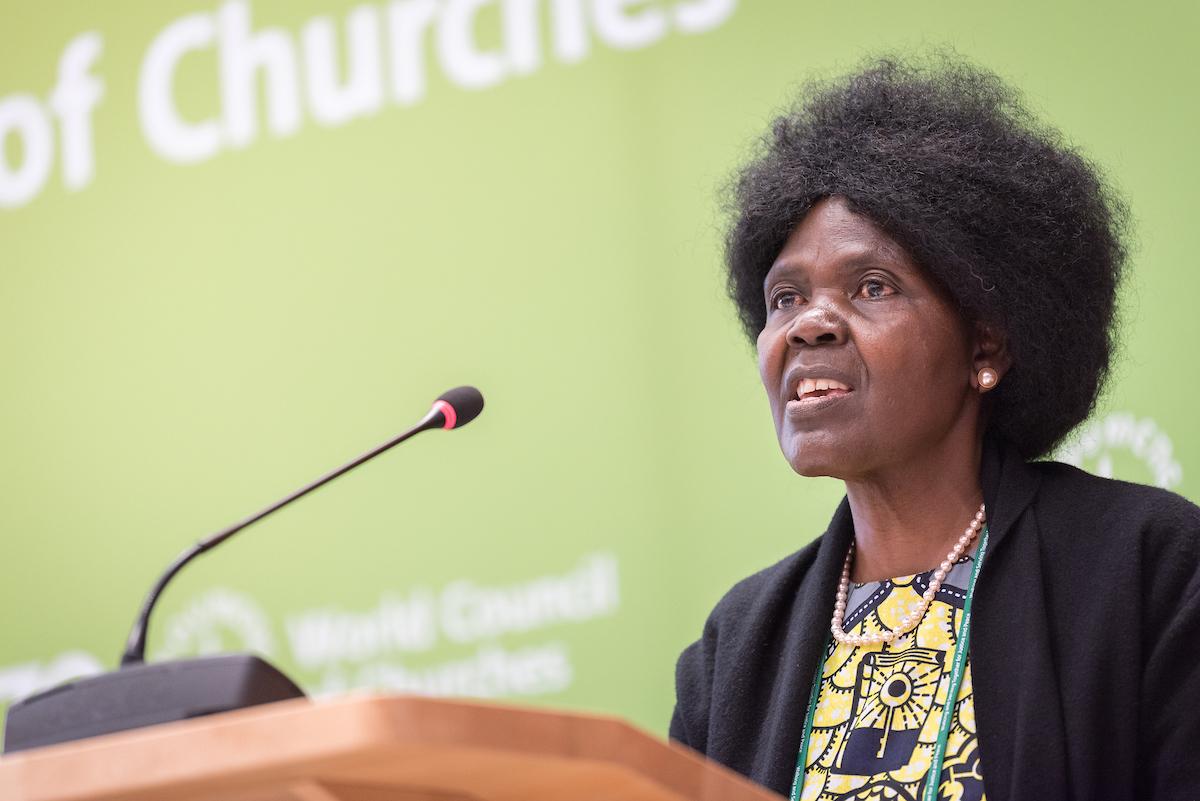As the World Council of Churches (WCC) executive committee convened online this week, the focus was on addressing the ongoing impact of the COVID-19 pandemic on WCC work, and on plans to scale up ecumenical cooperation to overcome racism.
In her opening remarks, WCC moderator Dr Agnes Abuom focused on how churches can continue to be beacons of hope and accurate information during the COVID-19 pandemic, how to address the sexual and gender-based violence as well as lessen the risk of violence against children, and how the WCC can continue to use online approaches to listen to the fellowship and be a voice of reason and support.
“Humanity and not least men and women of faith stand today on the edge of a cliff of life and are called to decide whether to jump or strive to climb upwards and discern the risks and strategies to manage,” she said. “The aim is for the executive committee to find relevant approaches of listening to and consulting with churches in order to be a voice of reason and support.”
Abuom also expressed concern about the significant increase in violence against women and children during this COVID-19 period. “The increase is driven by several factors,” she said. “Financial hardship due to restriction of movement and curfew affects livelihoods, especially for those working in the informal sector. Confinement at home under heightened levels of stress, uncertainty and fear, can produce stressful environments that precipitate violence. At this time, children are at heightened risk of all forms of violence, including violent discipline by family members and emotional abuse.”
Adding to the pain of COVID-19 is the fact that measures to mitigate the pandemic have made Christians abstain from physically attending sermons, Abuom added. “It is a painful time where we can only show love for one another by staying away from one another,” she said. “A contradiction in terms indeed from our understanding of fellowship! As some observers have noted, the fragility of life and for that matter the web of life, is threatened across the globe more than ever before.”
Rev. Prof. Dr Ioan Sauca, interim WCC general secretary, also shared a report that highlighted the WCC’s engagement with the fellowship of churches, and plans for addressing both sustainability and racism.
“When the executive committee met in June, you gave us the mandate to develop special plans for the sustainability of WCC programmatic work in 2021 in light of a revised budget for 2020 and the ongoing impact of COVID-19,” said Sauca. “You also reinforced the mandate to scale up the response to racism.”
In approaching the mandate, Sauca said, “we sought to be strategic, responsive and responsible; asking not only how to ensure that our work is planned with the financial means available, but trying to anticipate the needs of the churches in the time of COVID and increasing social unrest. At this meeting, we are asking for feedback on the direction for sustainability, so we can move forward with our plans.”
Sauca also reported that WCC staff have been deeply engaged in adapting to the current situation, learning how to continue their work with online methods and addressing the changes affecting the churches. “COVID-19 may have disrupted our ability to travel, but not our ability to convene our churches and partners in addressing the needs of the world,” he said.
